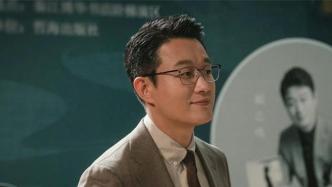
Note: This article contains serious spoilers
Although it still lags behind some classic suspense short plays, "Misplacement" is already one of the more watchable works of Misty Theater in the past two years. "Misplacement" still has shortcomings such as not being fast enough to enter and not being tight enough in rhythm, but it wins in that the suspense setting is clever, the plot gradually gets better, and the analysis of human nature is more skillful.

Poster of "Misplacement"
Clumsiness is cleverness
"Misplacement" is adapted from "Crossing Scenes", a 1976 novel by the famous Japanese mystery novelist Seicho Matsumoto. The story has an ingenious setting, which has been widely used in many suspense works. That is, the murder scene depicted in the crime novel written by the novelist is almost completely consistent with a murder case that happened in reality. Is the novelist an eyewitness or a murderer?
In terms of the detective storyline, "Misplacement" follows the novel's rules, and clumsiness is cleverness.
Gu Jiming (Tong Dawei) became famous for his crime novel "Black Rain". The murder scene described in the novel is exactly the same as a murder case on a rainy night that criminal policeman Jiang Guangming (Ma Yili) is investigating. Jiang Guangming then begins to investigate Gu Jiming.
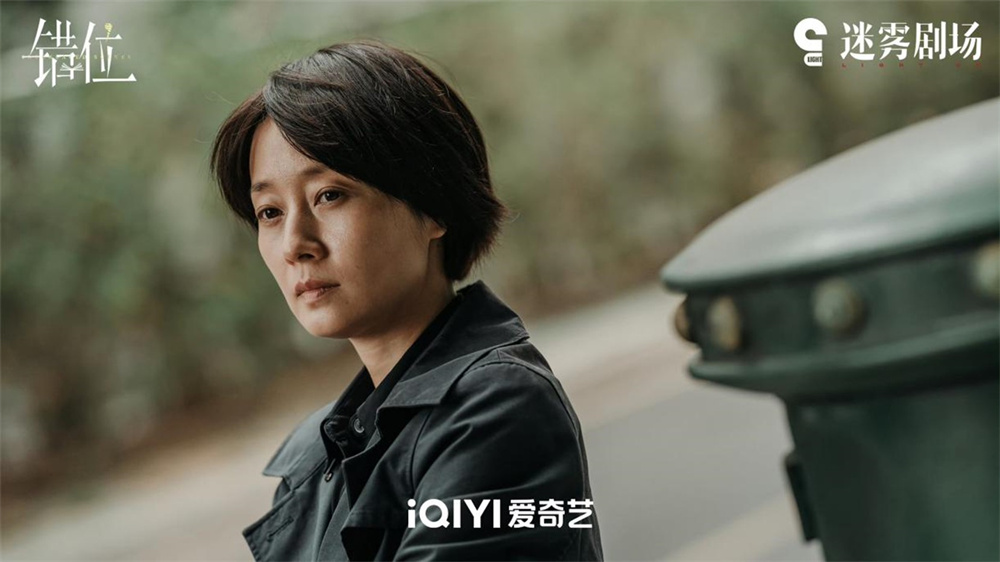
Jiang Guangming (played by Ma Yili)
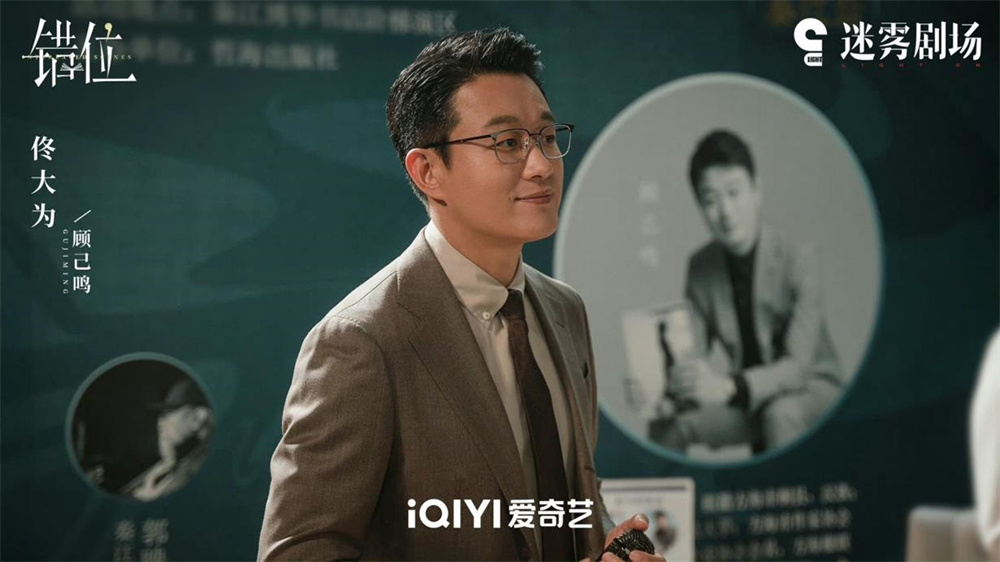
Gu Jiming (played by Tong Dawei)
Jiang Guangming has a keen observation and superb reasoning ability. She grasped the key doubt: where did the victim's dog go in the murder case? The dog leash is likely to be the murder weapon. After visiting and investigating, she found that a well-known writer named Tang Xun (played by Wang Jinsong) had stayed in a hotel near the crime scene and fed the dog.
After the murder, Tang Xun took his dog to another hotel in another city and seemed to have a close relationship with the hotel waitress Jiang Na (played by Zheng Shuijing). Tang Xun died shortly after the murder. When the police tried to get information from Jiang Na, they found that Jiang Na was missing...
The puppy that disappeared in the murder case - the writer who fed the dog - the hotel where the writer stayed - the waiter who disappeared in the hotel... every seemingly insignificant detail is a gear that drives the plot forward.
In episode 8, the real murderer of the murder case was arrested, and the truth of the case was revealed. Gu Jiming had nothing to do with the murder case, and Jiang Guangming's investigation seemed to be in vain. The coincidence between the description of the novel and the crime scene still made people feel uncomfortable, and Jiang Na's disappearance made Jiang Guangming unable to stay out of it. So Jiang Guangming insisted on looking for Jiang Na's whereabouts, and discovered a fact that Gu Jiming tried hard to cover up: he and Jiang Na had known each other for a long time.
The puzzle pieces are gradually being completed, and the whole picture is becoming clearer: Tang Xun witnessed the murder scene and wrote a novel based on it, and the hotel waitress Jiang Na copied Tang Xun's novel... The suspense is: how did Gu Jiming get Tang Xun's novel and publish it? Where did Jiang Na go?
"Misplacement" begins with a confusing murder case, which accidentally triggers a second case. The two seemingly independent cases are inextricably linked, the relationships between the characters are intertwined, and the motives behind them are complicated and difficult to discern. The audience follows Jiang Guangming's calm steps, unraveling the mystery layer by layer. There are bugs when you look closely, but overall it is orderly and down-to-earth, better than those suspense dramas that are flashy and mysterious.
The biggest problem with the detective storyline led by Jiang Guangming is that it actually deviates to describe Jiang Guangming's family life. Jiang Guangming is busy with work and neglects her family. Her husband cheated on her a year ago. When Jiang Guangming was planning to divorce, she unexpectedly found out that she was pregnant...
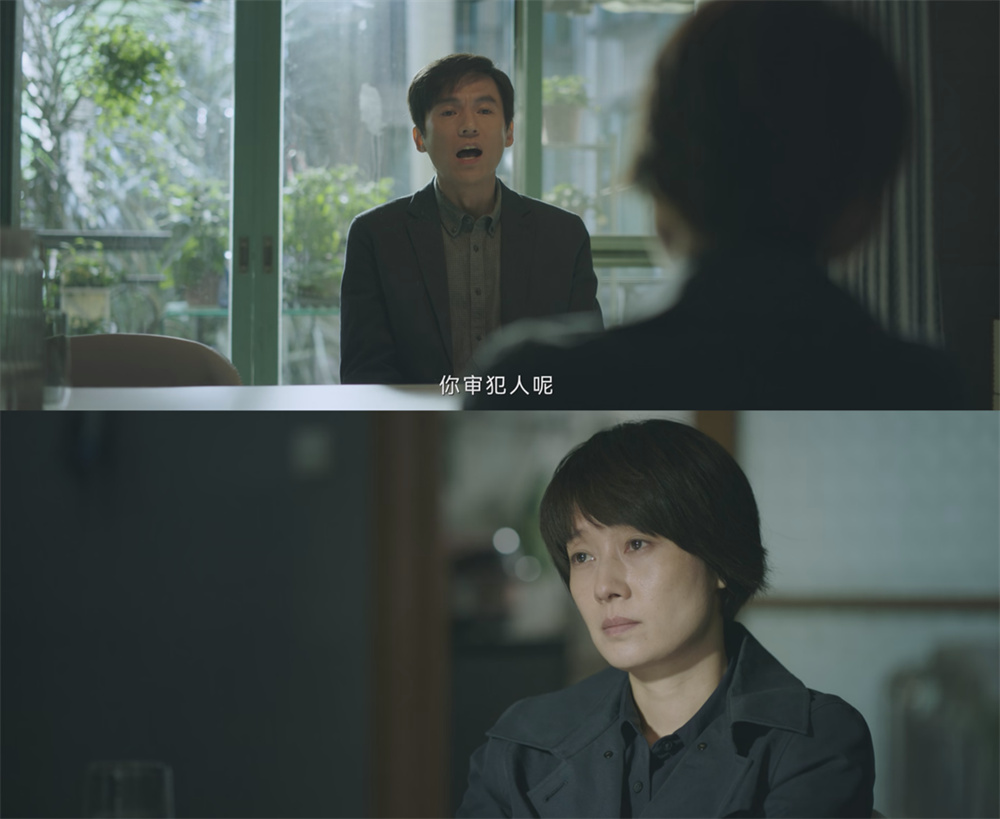
Jiang Guangming's marriage is in crisis
From "Jiang Qinqin" in "The Mist", "Song Jia" in "Echo", to "Ma Yili" in "Misplacement", and perhaps "Yan Bingyan" in "The Opponent", why is it that the heroines in domestic dramas, as long as they are criminal police (or "police" in a broad sense), as long as they are married, will fall into a common situation: their marriages are in trouble?
The screenwriter's intentions are understandable, such as reflecting the difficulty of criminal police work, the prejudice faced by professional women, or that the process of women investigating cases is also a process of overcoming personal crises and ultimately achieving self-reconciliation and redemption (Jiang Guangming has a subtle empathy with the other two pregnant women in the play), etc.
The problem is that it is too cliché. Repeated use of this plot template tends to reinforce the stereotype of professional women (especially female police officers), as if they must sacrifice family happiness in pursuit of their careers. The clichéd setting also hinders narrative innovation and diversity, causing aesthetic fatigue among the audience. More importantly, the core of a suspense short play lies in its compact rhythm and the continuous accumulation of suspense. Every inch of its narrative time is precious. Adding insignificant family ethics scenes will obviously interrupt the tense narrative rhythm, making the plot appear dragged out and affecting the overall viewing experience.
Suspense is the heart
The main plot of "Misplacement" is divided into two parts. One is that Jiang Guangming continues to approach the truth as mentioned above, and the other is that Gu Jiming's history and secrets are gradually revealed. Gu Jiming is the most important "eye of the play" in the second half of the series and the most brilliant character in the whole series.
At this point, it is almost a foregone conclusion that Gu Jiming killed Jiang Na. Fortunately, the screenwriter fully establishes Gu Jiming, and his inner world and the transformation of his humanity constitute the biggest suspense in the second half of the series.
Gu Jiming's "history of degeneration" continues the classic template in literary creation - "the degeneration of a poor boy". Julien in "The Red and the Black", Rastignac in "Old Goriot", and Gao Jialin in "Life" are all classic characters in this lineage. Gu Jiming has gone through a similar growth path as them, but he is extremely bad.
A poor boy from a poor family, he got into a key university with the highest score in the county in the college entrance examination, thinking that he could change his fate. After graduation, he just worked as an editor for a declining literary magazine. Gu Jiming, who loves literary creation, is eager to change his fate by publishing his own novels, but the bigwigs in the publishing house simply disdain him...
There is a scene in the series that well depicts the shattering of Gu Jiming's dignity. At a gorgeous cocktail party, Gu Jiming mustered up the courage to hand over his manuscript to the rich girl Su Zhenzhen (played by Lan Yingying), but was met with cold eyes. Su Zhenzhen's suitor even threw his manuscript all over the floor, revealing his contempt without disguising it.
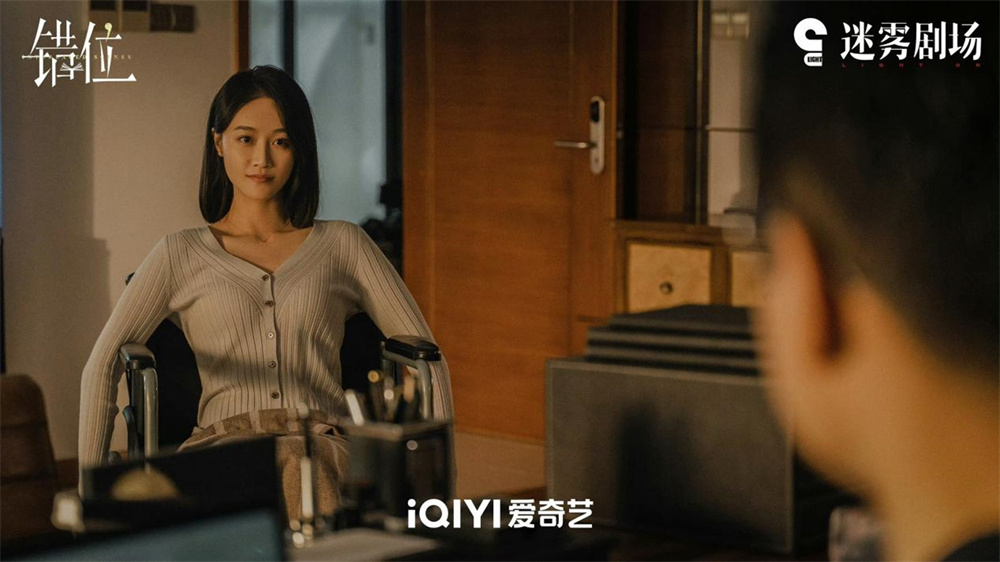
Su Zhenzhen (played by Lan Yingying)
Gu Jiming left in a hurry. There was a Rolls-Royce parked next to his car. There was only a thin gap between the driver's seat and Gu Jiming's car door, which was not enough for him to get in smoothly. Gu Jiming asked the driver to move the car slightly, but was ridiculed by the other party: "Do you know how much I charge for one step on the accelerator?" Gu Jiming had to climb into the car through the window in the narrow gap between the two cars. This moment was like a sharp blade cutting his dignity. He was frustrated, embarrassed, unwilling, and resentful. Tears rolled in his eyes and hatred accumulated in his heart.
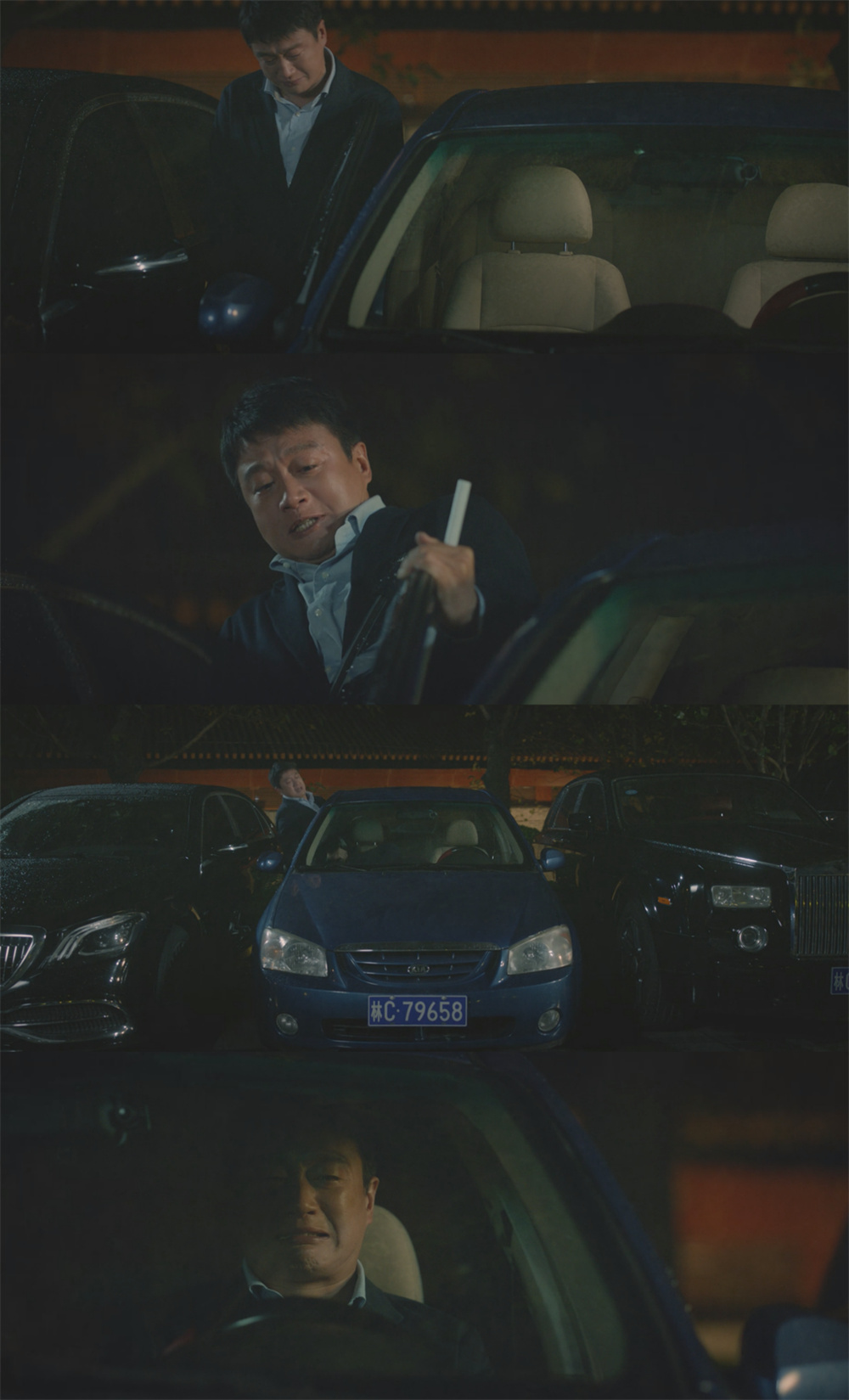
Gu Jiming suffered humiliation
Gu Jiming's downfall was not a matter of a moment, but rather the result of repeated mistakes. He repeatedly succumbed to ambition and desire and abandoned his sincerity and conscience.
After Su Zhenzhen was in a car accident and became disabled in her legs, he deliberately approached Su Zhenzhen, initially just hoping to win the opportunity to publish his novel.
When Su Zhenzhen chose him, he loved Jiang Na, and he had made up his mind to tell Su Zhenzhen everything, but when Su Zhenzhen threatened him with the publication of the book, he compromised again and again and betrayed Jiang Na.
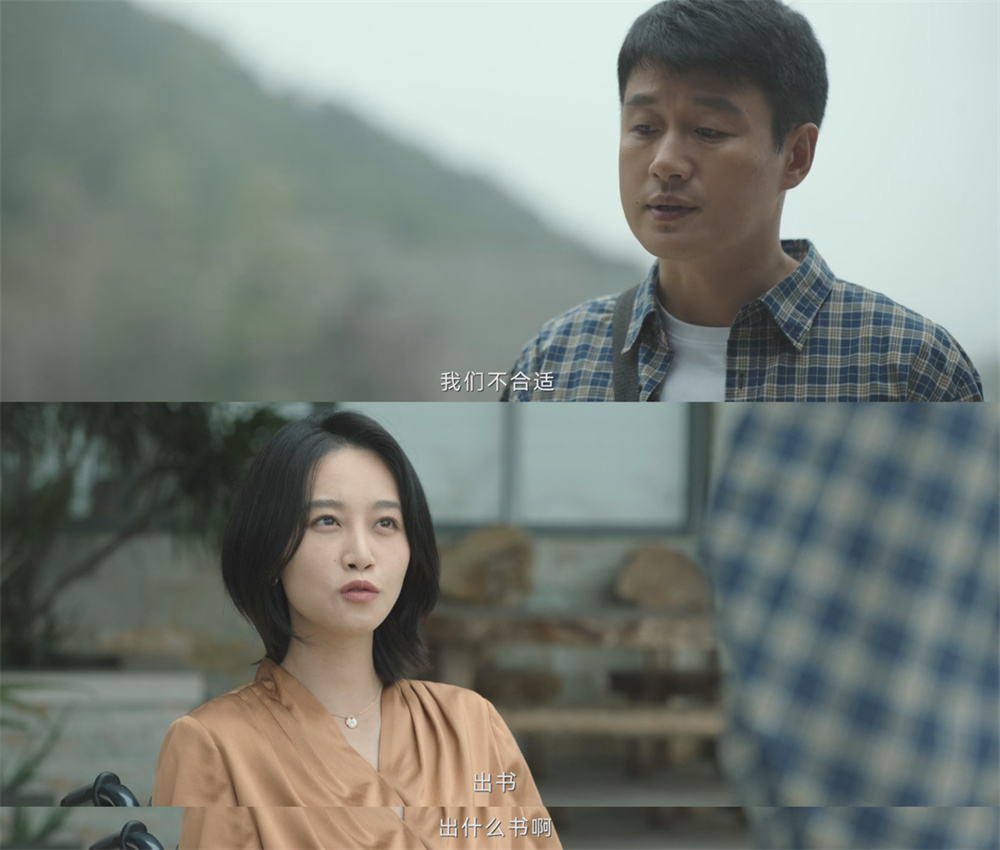
Gu Jiming also had a game of conscience
He plagiarized Tang Xun's novel and created "Black Rain" based on it. When Jiang Na opposed his plagiarism, he even wanted to kill Jiang Na...
Although the story of "poor boy's fall" has been performed many times, the presentation of "Misplacement" is still attractive. The process of an ordinary person gradually sliding into the abyss is itself a gripping suspense drama. At the beginning, it was just a small compromise. As the compromises increased, the originally clear sense of right and wrong gradually blurred. In order to achieve the goal, more and more means were acceptable, and the speed of sliding into the abyss also accelerated until it touched the bottom line of the law and could never go back. This process fully demonstrates the fragility and complexity of human nature under pressure and temptation, and triggers the audience's deep thinking about the boundary between good and evil.

Eating kimchi and drinking red wine, Gu Jiming could not let go of the past, nor fame and fortune. He could not go back.
Julien-like characters often reflect social injustice and class stratification, but the internal factors of Gu Jiming's degeneration far outweigh the external factors. Regardless of whether he is truly talented (why would he have to find a ghostwriter after becoming famous if he was truly talented?), there have been many people who have been unappreciated for their talents from ancient times to the present, but being unappreciated does not mean that one's life is doomed, nor does it mean that one has to hurt the weaker in order to climb up. Gu Jiming's degeneration is more of a pure display of the evil of human nature.
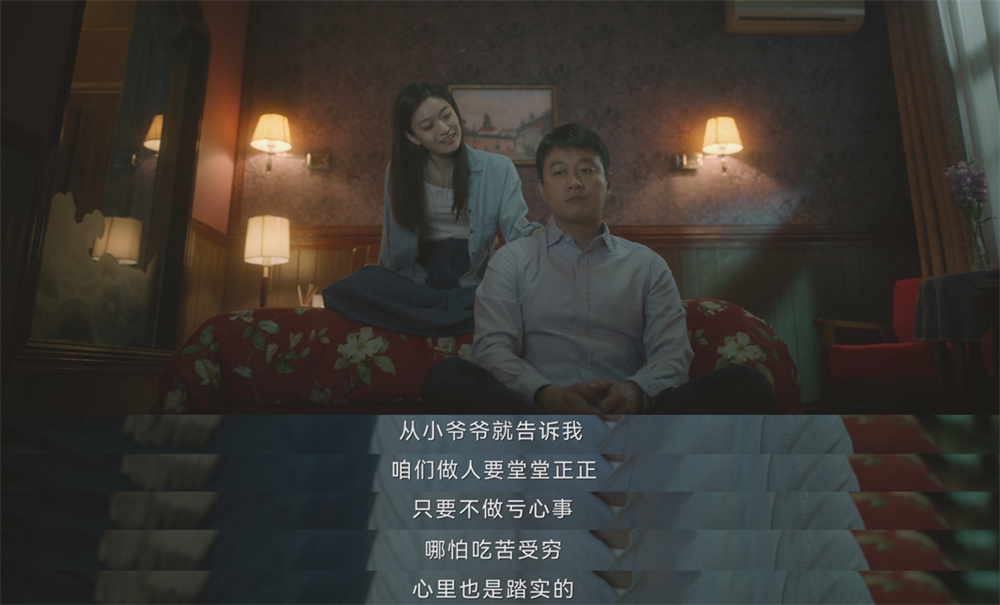
Although she also encountered difficulties, Jiang Na’s philosophy of life was upright.
The screenwriter weakened the social reference and strengthened the revelation of the dark side of human nature through the mirror image of Su Zhenzhen and Gu Jiming. They may be essentially the same kind of people. Gu Jiming will do anything to achieve his goal. In order to control Gu Jiming and turn him into a perfect "work" that only belongs to her and is also in the eyes of outsiders, Su Zhenzhen not only tries to control Gu Jiming emotionally and psychologically, but also does everything to maintain the perfection of the "work". Did she love Gu Jiming? Maybe she just loves this sense of control, the vanity and sense of accomplishment brought by a perfect "work".
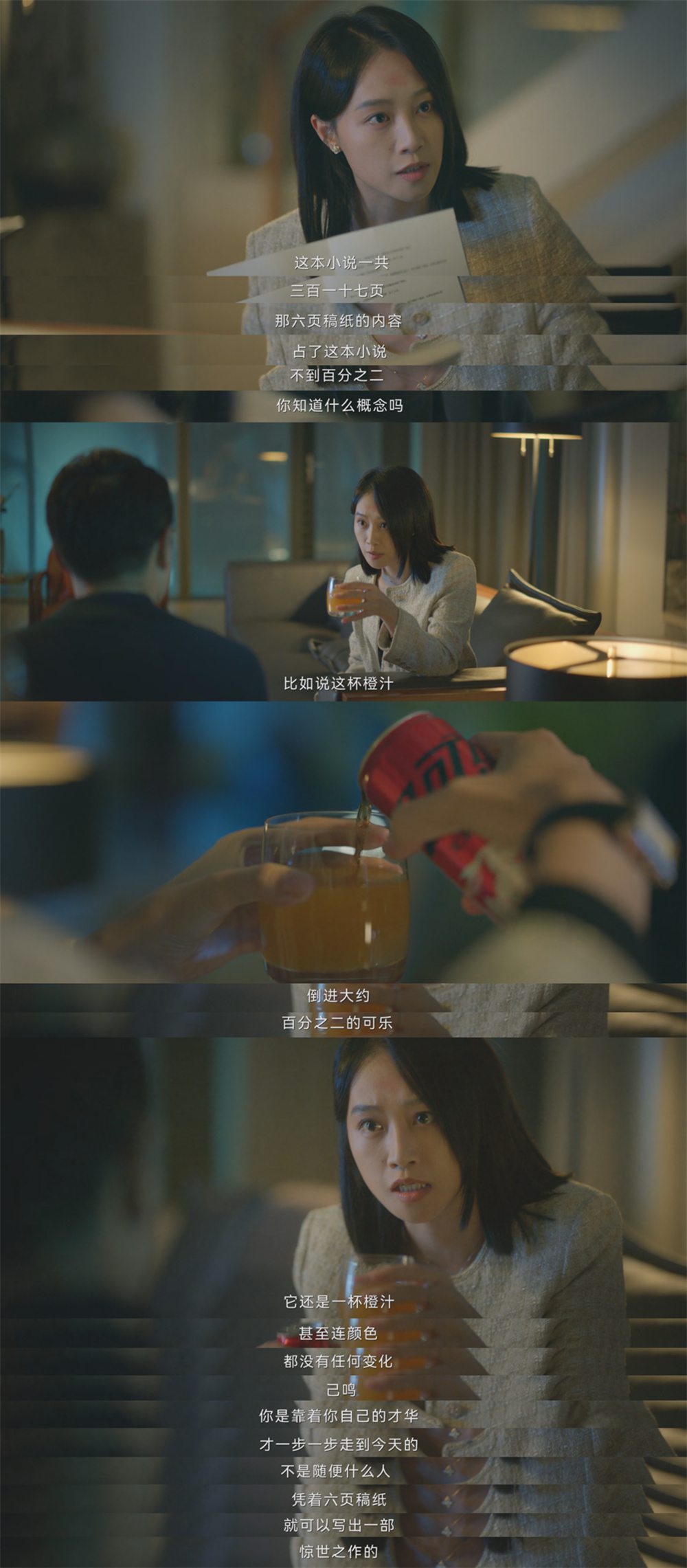
Su Zhenzhen and Gu Jiming are the same type of people
At the end of the series, in order to show the empathy between women, the screenwriter changed Su Zhenzhen's character a little abruptly. It was only the poor boy who fell, and the rich girl regained her life after becoming a mother. The screenwriter was inevitably suspected of "disdaining the poor and loving the rich". Therefore, suspense dramas should be cautious in "raising values". In order to raise a value, the real value loopholes are often exposed.
Although Seicho Matsumoto is a giant of Japanese social mystery novels, "Crossing Scenes" does not rigidly relate to any social issues (it is more of a satire on the Japanese literary ecology at the time), but focuses on the ingenious conception of suspense and the in-depth portrayal of human nature - this is also what social reasoning relies on. "Misplacement" generally continues this feature. The series has a carefully designed plot: the overlap between the novel and the murder case leads to another murder case, including unexpected twists and turns, ensuring that all clues can be reasonably explained in the end; at the same time, the series contains a multi-level display of human evil, not just referring to a single dimension of evil, but also selfishness, greed, betrayal, deception, control and other negative emotions and behaviors, which increases the curiosity and appeal of the story and reflects on the complexity and multi-faceted nature of human nature.
Misty Theater specializes in social mystery dramas. Although there are some good works, there are more flops. One of the main reasons is that they focus too much on piling up social topics, which makes them lose sight of the big picture. The suspense clues are stiff, lacking fascinating plots and the fun of solving puzzles. The portrayal of human nature also lacks enough memorable points. This time, "Misplacement" is not that good, but at least it did not go down this detour again.


